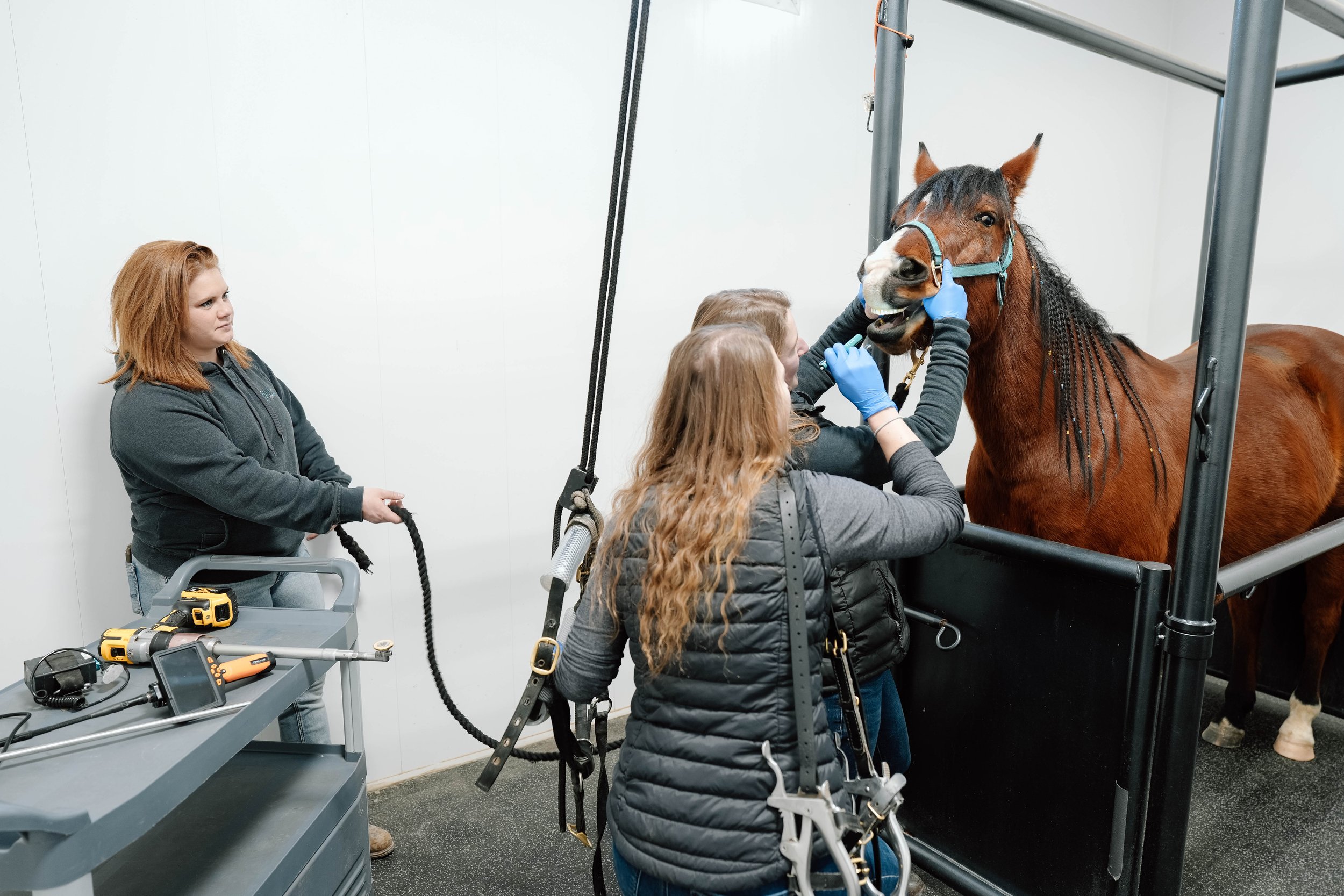
DENTISTRY
Regular dental care is such a critical part of preventative medicine in all ages of horses! We offer both the routine dental care and maintenance, as well as the advanced techniques and extractions that characterize specialized care. For routine dental care, we offer both in clinic and on farm services, and for our more complex cases our facility has multiple sets of stocks to allow for horses to be safe and comfortable during longer procedures. We recommend that your horse has a sedated dental examination at least once a year so we can catch any issues right away and ensure that your horse is feeling their best!
All our veterinarians are well trained in routine dental examination and floating. Dr. Sarah Thomas has a passion for dentistry and has done multiple continuing education opportunities for oral examinations, procedures, and extractions, including an Advanced Oral Techniques course.
ROUTINE DENTISTRY
-
Our veterinarians can palpate the level of sharp enamel points at the front of the cheek teeth and take a brief visual look for any obvious malocclusions. Please note, this does not replace a comprehensive sedated examination and pathologies and malocclusions may not be able to be visualized during a brief visual examination.
-
Our veterinarians will perform a detailed sedated examination to determine what occlusal adjustments are necessary and identify any fractured teeth or areas of concern.
-
Depending on what our veterinarians find on intraoral examination, they will use our powerfloat equipment to perform occlusal adjustments to help your horse to be more comfortable, as well as to improve their ability to chew their food (especially important in older horses).
ADVANCED DENTISTRY
-
If your horse has an abnormal gap between their teeth they often pack feed in these areas, which can lead to gum disease, gum/bone recession, and even tooth root abscesses. This procedure helps to prevent feed from getting locked into these areas and causing disease!
-
Dental radiographs are an essential part of determining if teeth need to be extracted, to help predict how difficult a tooth may be to extract, and to monitor teeth with minor issues/fractures.
-
A tooth may need to be extracted for multiple reasons including root tip abscesses, mobility, and fractures. We offer extractions of incisors, canines, wolf teeth and cheek teeth on an as needed basis. Extractions (especially cheek teeth) can take a longer period of time and are under a stronger standing sedation than a routine dental, so we recommend that horses be brought to our facility to implement our stocks and provide a safe and comfortable environment for our staff and your horse. We use dental nerve blocks to ensure that your horse is comfortable for the procedure and perform post extraction radiographs to confirm that all pieces/roots are removed. Please see the below video for a peek into what a dental extraction procedure is like!
-
We are very lucky to have a dental scope that we are able to implement in more complex case diagnosis and tooth extractions, as well as for taking photos to help monitor conditions/fractures.
EOTRH: A Dental Disease in the Elderly Equine. By Dr. Sarah Thomas
Proactive Winter Horse/Donkey/Mule Care
What Happens to Wild Horses That Don’t Get Dental Care?
Equine Dentistry: Why Equine Veterinarians are Uniquely Qualified
A Guide to Equine Dental Care







